Gustavo Esquina discusses the relationship between Barrio Fino and Congo carnival traditions.
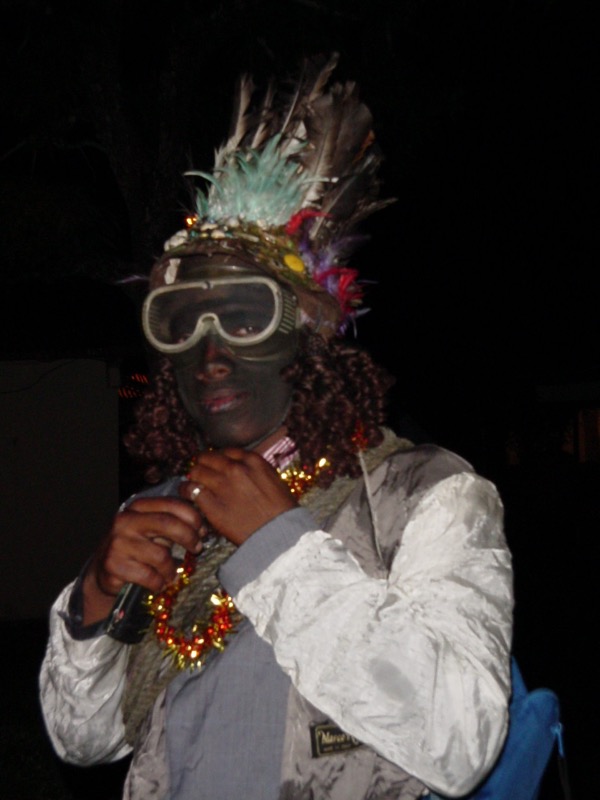


Gustavo Esquina discusses the relationship between Barrio Fino and Congo carnival traditions.
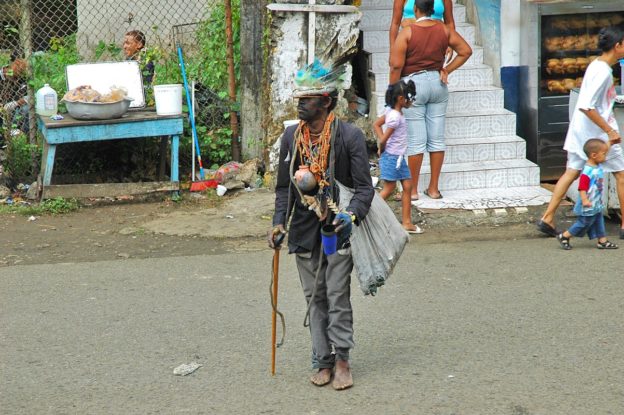
In this excerpt, Maestro Andrés discusses his reasons for no longer participating in the Congo tradition and the changes he has seen in the tradition with the advent of “the road.”
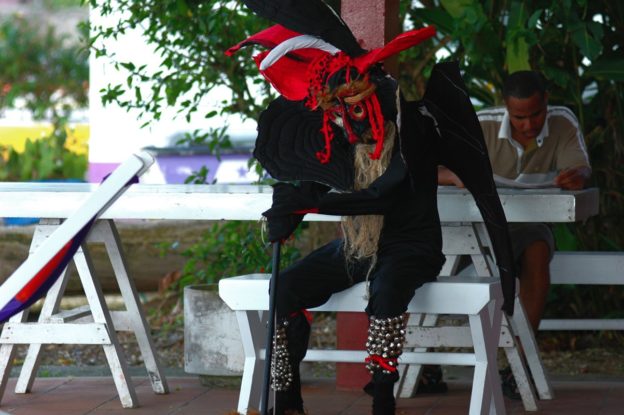
In this excerpt, Chavarría discusses the significance and meaning of the devil character in the Congo tradition.
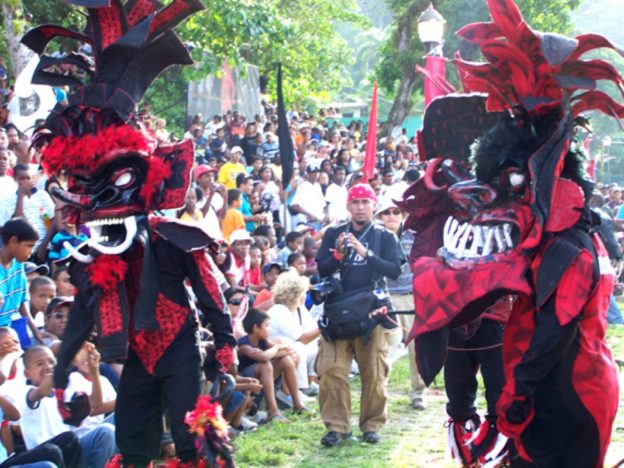
In this excerpt, Maestro Andrés discusses the changes he witness in the tradition after the advent of “the road.” He especially focuses on the changes he has seen with respect to the devil character.
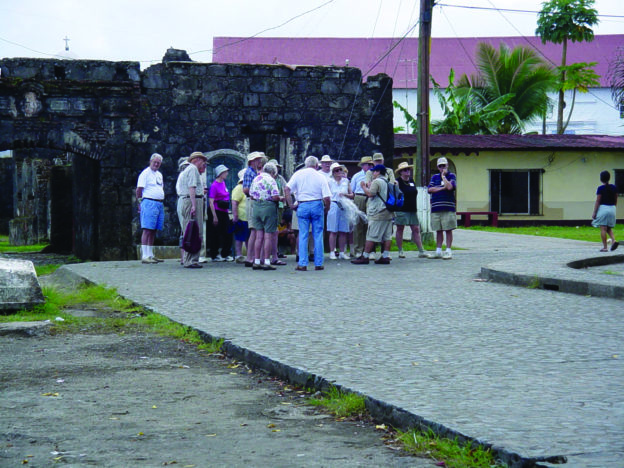
In this excerpt, Maestro Andrés discusses the impact of tourism on the tradition, including the monetization of various aspects and changes in costuming. In describing the current tradition, he references the impact of the “the road” on the town. At this point in the recording, the tape appears to have sped up causing distortion.
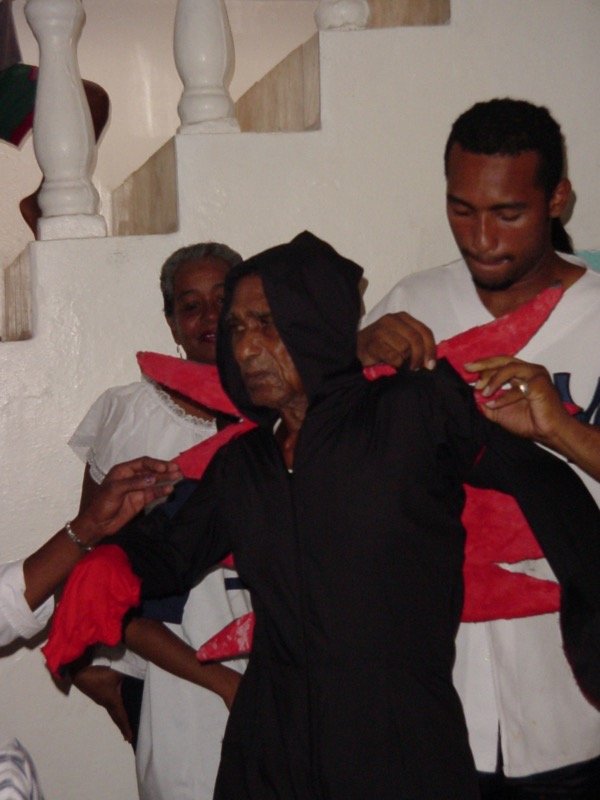
In this excerpt, Chavarría discusses his memory of the last time the renowned Celedonio Molinar performed as devil and how his mentor retired in 2003 after being honored at that year’s Festival de los Diablos.

In this excerpt, Chavarría shares cherished memories of his mentor, Celedonio Molinar, including seeing him “fly” from roof to roof as Major Devil. Chavarría also discusses important lessons and ritual practices that he learned from his mentor about performing the Major Devil role.
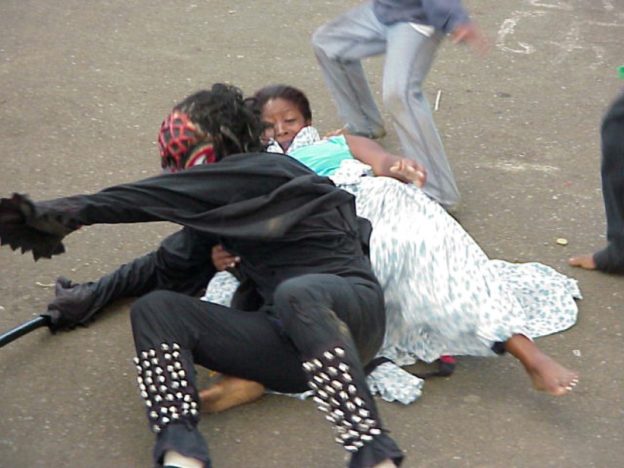
In this excerpt, Chavarría talks about the importance, for him, of playing the Devil character from “emotion” and his decision to break away from a particular ritual that marked his mentor’s embodiment of Major Devil.
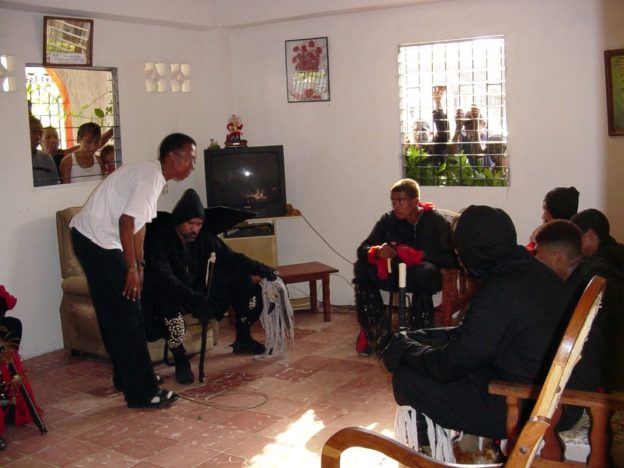
In this excerpt, Chavarría discusses the process by which he became Major Devil in the Congo tradition of Portobelo, Panama.
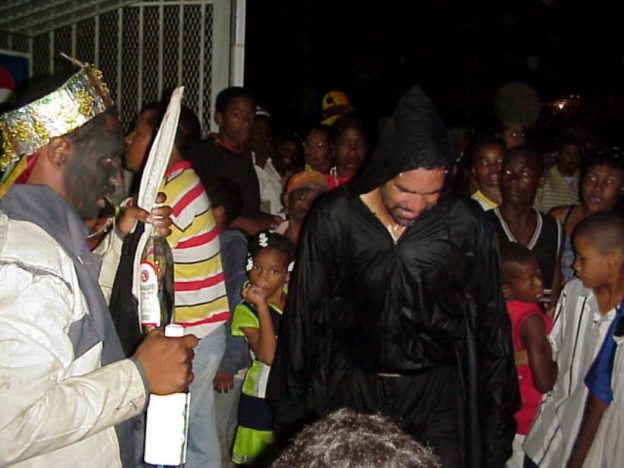
In this excerpt, Chavarría discusses his particular style of “Devil” embodiment within the Congo tradition and the way others perceive of his performance. He also talks about the respect devils from outside of the community give to the devil of the town they are visiting. Each visiting devil must submit to the rules of the game as practiced by the local community.